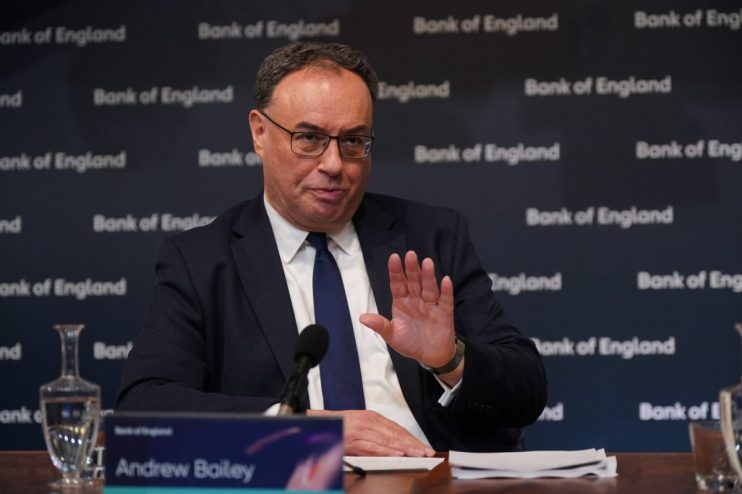Investors are not taking the Bank of England seriously

Many in the City interpreted last week’s interest rate decision as a decisive victory for the Bank of England’s doves, signalling the start of a long and overdue fall in borrowing costs.
There’s a clear case to be made. The Monetary Policy Committee (MPC) was unanimous in calling for interest rates to head lower while the Bank of England also slashed its growth forecasts.
It suggests that policymakers have grown more concerned about the health of the economy than lingering inflationary risks.
Some might cheer for the decision. A succession of investment banks have predicted that the Bank could cut rates five or six times this year, largely due to the weakness in the economy.
But if you take the Bank’s latest forecasts seriously, then this is not going to happen.
Inflation to pick up
According to the central bank’s forecasts, the headline rate of inflation will rise to 3.7 per cent later this year, only returning to target towards the end of 2027.
The main reason for the increase is higher energy prices, which are around 20 per cent higher than in the Bank’s November forecasts.

The MPC was willing to cut rates, despite the pickup in inflation, because it judged that higher energy prices would not spark so-called second-round effects.
Second-round effects capture the knock-on impacts of higher input costs. Think firms raising prices to maintain their margins, and workers demanding a pay rise as things get more expensive.
These are the things that the Bank of England is really worried about. After all, domestic monetary policy cannot impact the international gas market.
The basic hope is that the increase in energy prices is just so much smaller than the aftermath of Russia’s invasion of Ukraine, that the same second-round effects won’t materialise.
In addition, the economy is also much weaker than it was immediately post-pandemic, when there was a surge in demand following the lockdowns.
But Bank officials – while more relaxed than three years ago – are clearly still worried by the prospect of some knock-on effects.
The Monetary Policy Report expressed concern that the “threshold for second-round effects may now be somewhat lower,” simply because inflation has been above two per cent for so long.
免责声明:投资有风险,本文并非投资建议,以上内容不应被视为任何金融产品的购买或出售要约、建议或邀请,作者或其他用户的任何相关讨论、评论或帖子也不应被视为此类内容。本文仅供一般参考,不考虑您的个人投资目标、财务状况或需求。TTM对信息的准确性和完整性不承担任何责任或保证,投资者应自行研究并在投资前寻求专业建议。
热议股票
- 1
- 2
- 3
- 4
- 5
- 6
- 7
- 8
- 9
- 10